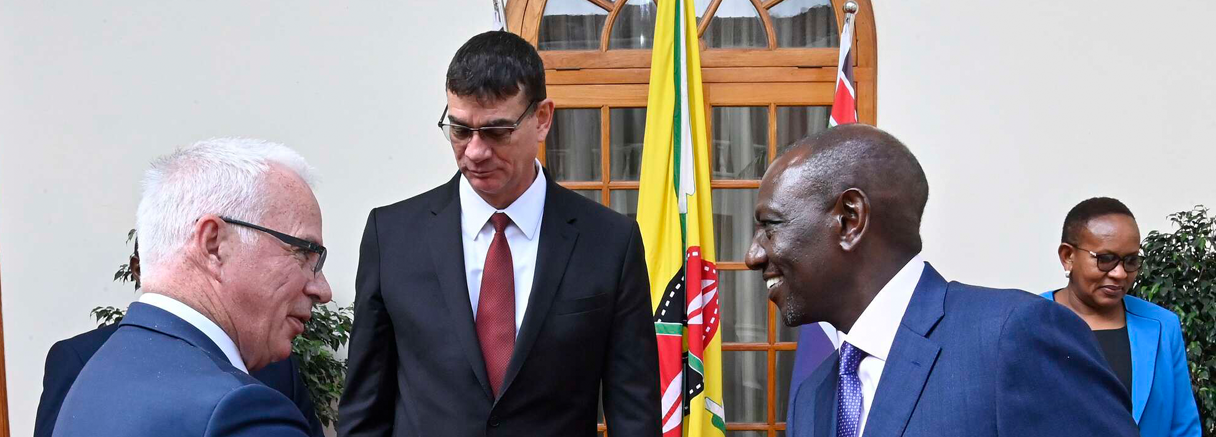Climate crisis is battering health care, but funds are going elsewhere

A historic day at the 28th Conference of Parties (COP28) on climate change presented a unique opportunity for the health sector as global leaders for the first time had a day dedicated to discussing the link between climate change and the wellbeing of people.
For years, health, which some scientists say is the human face of climate change, has not received prominence at climate conferences despite glaring evidence of the impacts of a warming planet on people’s health.
The World Health Organisation (WHO) warns that climate change is directly contributing to emergencies such as heatwaves, wildfires, floods, tropical storms, and hurricanes, whose magnitude is increasing in scale, frequency, and intensity; and a report by scientists from the Intergovernmental Panel on Climate Change's (IPCC) shows that 3.6 billion people already live in areas highly susceptible to climate change.
The WHO also adds that between 2030 and 2050, climate change is expected to cause approximately 250,000 additional deaths every year from undernutrition, malaria, diarrhoea, and heat stress. This trickles down to the cost of healthcare and an estimation by the WHO shows that a direct impact would cost about $2 to $4 billion every year by 2030.
“Areas with weak health infrastructure – mostly in developing countries – will be the least able to cope without assistance to prepare and respond,” says the WHO.
In an interview with the Nation on the sidelines of COP28, Global Fund executive director Peter Sands said that his organisation is committing a significant proportion of its resources to the countries most affected by climate change.
“About 71 per cent of the Global Fund resources, which is about $9 billion, are committed to the 50 most climate vulnerable countries in the world,” he said, adding: “The key thing that should come from the Health Day is a real sense of urgency –understanding how climate change is impacting health and to protect those most at risk.”
Sands said that it is time for countries to make better links between meteorological and epidemiological data, noting that it will enable easier linkages from health ministries to anticipate when they are going to get surges of infections. He added that countries are already prioritising their needs on funding climate impacts on health, indicating how alive the impacts are on the agenda of health ministers.
“Countries are responding quickly to the realisation that climate change is impacting the health of their populations. About 40 per cent of the funding request for the next cycle of funding which will be in January 2024 included considerations around climate change,” he said.
Already, there is a common position endorsed by African Health Ministers following an inaugural meeting in Malawi and a follow-up from the Nairobi Declaration in September this year. Speaking to the Nation, Malawi Health Minister Khumbize Chiponda, who is one of the pioneer African health ministers championing climate and health inclusion, said that being part of the discussion will help health ministers address any funding gaps.
“One of the common positions that we had was ensuring that health is given priority at climate conferences. We have to come in. But this has to start from our countries,” she said.
Mr Aloyce Urassa, chairperson of the African Leaders Malaria Alliance youth advisory council who is also a climate and health researcher, told the Nation that funding remains a big challenge in addressing the impacts on the ground despite the evidence.
“Clear evidence on the baseline of my research shows that many countries have Health National Adaptation Plans as well as other policies that have been put up to respond to climate change and health but there is near zero action that is taken,” he said.
To partly address the funding gap, partner organisations like the Rockefeller Foundation, Green Climate Fund, and the Global Fund announced that they have pulled together about $1 billion that will be used to support projects that are strengthening climate-resilient health systems.
The Wellcome Trust also awarded about 14 million Euros to researchers who will link climate and health data to a global platform led by a team of scientists at the University of Oslo.
“The changing size, age, and geographic distributions of populations worldwide, coupled with the effects of climate change, demand more effective digital health systems to support the planning and delivery of care,” said Tariq Khokhar, Head of Data for Science and Health at Wellcome.
This story is produced courtesy of a fellowship by the Internews' Health Journalism Network.